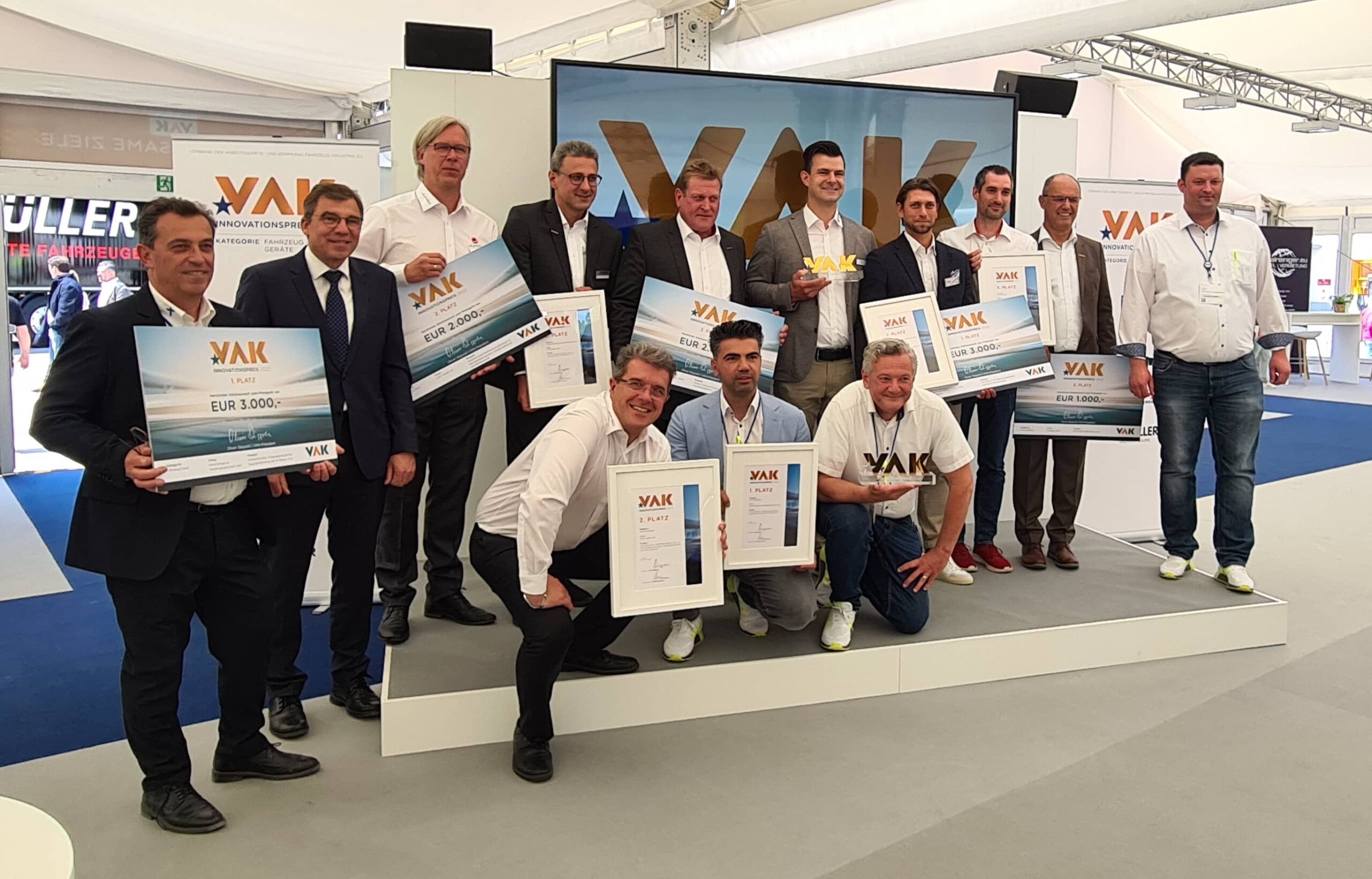On May 30th, the VAK Innovation Award 2022 was presented at 1:00 p.m. at IFAT in Munich. The following companies won in the machines category:
The first prize went to Kanalreiniger.eu a company that sells and rents sewer cleaning machines. The innovation, in the eyes of the jury, was probably that Kanalreiniger combined existing solutions into a package and offered them for sale or rent. This is a Green G from ecarry as the chassis, the 35 E-Total body from Xdea and the KT 30 high pressure system from Pratisolli.
For our electric utility vehicles blog, the runner-up is of special interest:
Jungo AG presented an electric utility vehicle, which was on display at the Jungo stand in Hall C5 in both the basic version and the street sweeper version. There were quite a few innovations at the same time:
An exchangeable battery system that makes it possible to operate the vehicle 24/7, without breaks for charging (the batteries are changed within a few minutes). Meanwhile, the second set of batteries can be charged slowly, e.g. directly by renewable energy, without having to store it again in a wallbox. With a larger fleet, this also prevents the peak in energy consumption that usually occurs during the lunch break and after the end of a shift.
The system is also scalable between 15 and 60 KWh in 4 steps, so that only as much energy and thus weight is taken along as the current task of the multifunction machine requires.
In addition, wheel hub motors from Elan Systemtechnik are used, which currently offer the highest recuperation on the market during braking.
Another innovation is the use of micro-hydraulics. This avoids hydraulic interfaces to the attachments, which further accelerates the quick-change capability and eliminates the leakage problem. Instead of 80 litres of oil, only about 3 litres are needed and lubrication or oil changes are not necessary during the entire lifetime of the machine.
All in all, care was taken to leave as small a CO2 footprint as possible, starting with the selection of materials at the design stage and then throughout the entire life cycle. Production takes place at the site in Rostock-Laage in an industrial park fed with green hydrogen. The Jungo Group takes back used vehicles and reconditions them for further use instead of recycling or even scrapping them. Third place went to Palfinger GmbH with its eDrive battery-powered crane.
